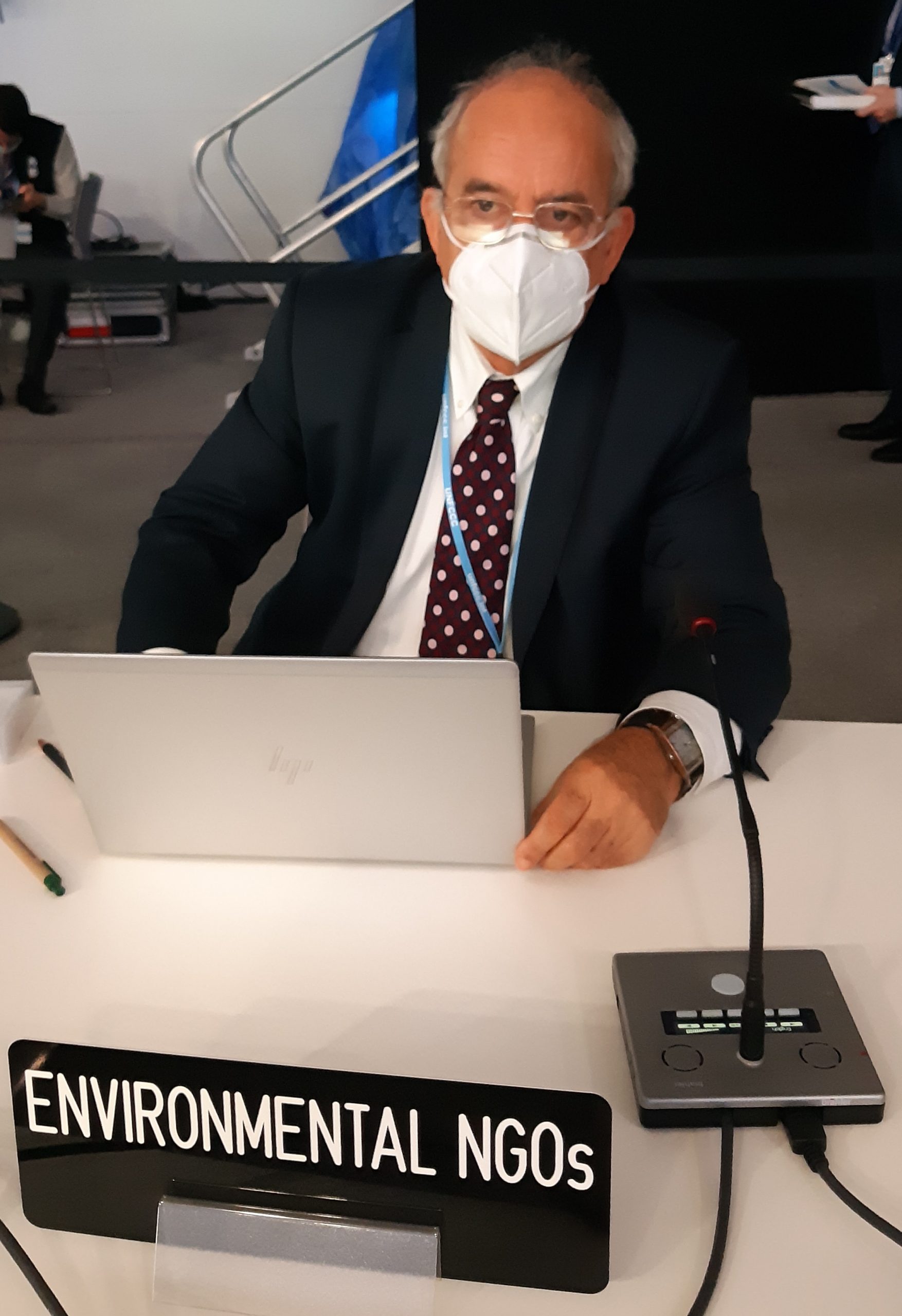Islamic Relief’s Jamie Williams reports on efforts to agree critical climate change adaptation commitments at the climate summit in Glasgow, Scotland.

I think Glasgow is one of the friendliest cities in the UK. These 2 weeks it has seen an influx of upwards of 150,000 people here for COP26.
Residents’ commutes and school runs, shopping trips and walks in the park have been interrupted as roads and whole sections of the city are closed off. Every spare bed is filled and cruise ships on the river provide extra accommodation. Busses and trains are overflowing. Colourful and committed marchers and demonstrators disrupt daily routines. There is a police van on every corner.
The people of Glasgow have changed their routes, found even more space for visitors, waited patiently for public transport and reacted with humour and goodwill to protestors and police alike. And they remain as friendly as ever.
Their example is one that attendees at COP26 ought to bear in mind.
Inside negotiations on the Global Goal on Adaptation
When change happens we must adapt – we’re now grappling with how, exactly, to do that in the context of climate change. It is about coping with the situation now, and looking ahead to what will be different in the future.
Inside COP26 Islamic Relief have been deeply involved in talks between countries on the topic of adapting to climate change. This week I was in the final negotiations about the Global Goal on Adaptation: the way in which the Parties (countries) will make sure that everyone has what they need to adapt to climate change.
There was a problem: a group of rich countries felt that this Global Goal should continue to be managed by the committee that has been working on it for the last 2 years. Another group, of developing countries, said that adaptation was so important that it should be taken over by the COP.
They had been arguing for several days.
As we waited for the meeting to start, I talked with the negotiators for each of these groups, explaining the views of the other. I did not need to use the diplomatic language expected in negotiations. Instead I could explain that each group wanted the same thing: expert but powerful leadership.
When the negotiations restarted, both groups reflected my observations, and finally an agreement was found. This is an example of what Islamic Relief can do to bring the world together to protect and support the poorest and most vulnerable.
Helping countries agree on climate action
At COP, Islamic Relief have been helping rich and poor countries come together to agree who, how and when their adaptation commitments are going to be achieved.
We are insisting that adapting to climate change is about people – their local knowledge and understanding must be at the centre of plans and activities. When the poor and most marginalised have leadership in these efforts then all will benefit and no one will be left behind.
Islamic Relief cannot make the people’s plans, nor make the changes in their lives needed to adapt. But we can help.
Our livelihoods programmes assist people to emerge out of poverty and organise themselves for mutual support and further improvement. Early warning and risk reduction schemes build links between people and information about how changes in the climate will affect their area and the options for adaptation.
We are all responsible for making sure people have the resources, capacity and knowledge to take the lead.
Islamic Relief is taking that message to the COP this year. Because of our work the voices of those we serve, and their experiences facing climate breakdown, are being heard. Agreement between countries has been made easier.
We will continue to encourage countries, donors and banks to live up to their responsibilities.










